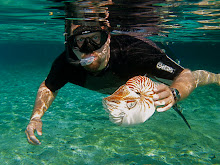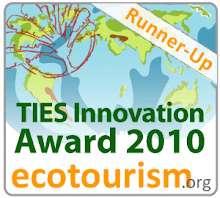 Prior to the group leaving for Palau the class was given a series of lectures from their teacher, Tina Champagne, the Oceanic Society biologist (and blogger), Wayne Sentman, and Educational Technologies, Harvard University Extension School Master's Candidate, Alisyn Johnson. The students came up with ideas to help facilitate their two weeks without red meat and get more individuals to participate, one student even had her family cat join in with the pilot program! The school was extremely supportive where the kitchen lunch staff helped the students by offering special lunch options for the participating students during the two week period.
Prior to the group leaving for Palau the class was given a series of lectures from their teacher, Tina Champagne, the Oceanic Society biologist (and blogger), Wayne Sentman, and Educational Technologies, Harvard University Extension School Master's Candidate, Alisyn Johnson. The students came up with ideas to help facilitate their two weeks without red meat and get more individuals to participate, one student even had her family cat join in with the pilot program! The school was extremely supportive where the kitchen lunch staff helped the students by offering special lunch options for the participating students during the two week period.The ecotour group who is currently in Palau learning about topics like shark conservation, coral reef ecology, sea turtle conservation, and marine protected areas was thrilled to learn of the students efforts. Many have opted to give up red meat while in Palau to show their support of the students efforts on their behalf.
This pilot program was set up as a cooperative experiment between the school, Oceanic Society, and Quen.ch (a new non-profit established to facilitate web-based ecology learning for students). After feedback is collected from the students and teachers that participated in this study, Oceanic Society is hoping to utilize this project on a larger scale to link this CO2 offset program with marine conservation educational opportunities for middle and high school students.




